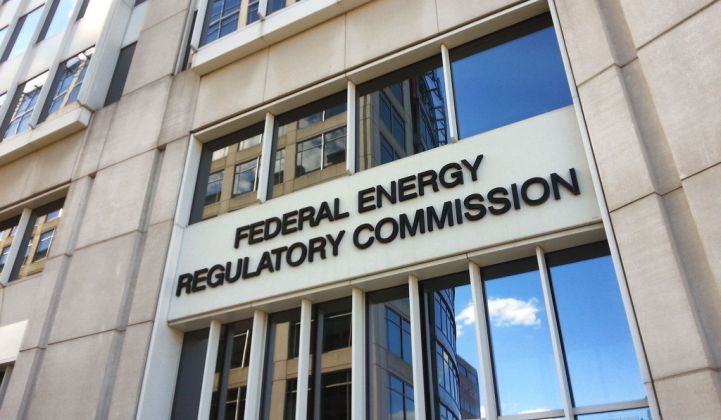Ladies and gentlemen, we have a quorum.
On Thursday evening, the U.S. Senate confirmed Robert Powelson, commissioner on the Pennsylvania Public Utility Commission and current president of the National Association of Regulatory Utility Commissioners, and Neil Chatterjee, energy adviser to Senate Majority Leader Mitch McConnell, as the newest members of the Federal Energy Regulatory Commission (FERC).
Powelson and Chatterjee now join Acting Chair Cheryl LaFleur on the five-member commission, which hasn't had enough members to be able to make binding decisions since February. FERC is responsible for regulating wholesale electricity markets and the interstate commerce of natural gas.
LaFleur, a Democrat, tweeted Thursday: "Happy day! Very excited to work with new Commissioners Chatterjee and Powelson!"
Without a quorum over the last six months, work to approve new rules and tens of billions of dollars in energy infrastructure stalled.
LaFleur has been the only FERC commissioner for more than a month now. Former Commissioner Colette Honorable left at the end of her term in June. Former Chairman Norman Bay chose to leave the commission earlier this year.
The commissioners will certainly have their hands full. Along with approving a backlog of natural-gas pipelines stuck in the review process, they'll also be grappling with market-making (or market-breaking) rules for allowing distributed energy to play in wholesale markets.
With distributed resource deployment outpacing market regulations, commissioners will be working overtime to keep pace with technology trends on the grid.
Senator Sheldon Whitehouse (D-RI) spoke with Commisioner Chatterjee shortly before he was confirmed. According to Whitehouse, the two men spoke about the role of FERC in opening up markets for distributed resources.
“He clearly appreciates the value of new technology and understands how the Commission’s guidance will help ensure these technologies are incorporated into regional energy markets. Mr. Chatterjee agreed that the Commission should not give short shrift to our renewable energy industry, and that this rule, which is almost done, would not be unduly delayed. He heard our concerns and I will hold him to that commitment,” said Whitehouse in a statement.
FERC is also considering how state renewable energy policies impact regional electricity markets. The commission will also work to establish guidelines for storage to participate in regional markets, after issuing a notice of proposed rulemaking last fall.
Nuclear will be on the agenda, too. Competitive power providers are challenging state-level policies favoring nuclear, saying they infringe on FERC's authority. They argue that localized policies favoring one technology over another -- in this case, zero-emissions credits for nuclear in Illinois and New York -- are distorting markets.
There's also a possibility that the DOE's anticipated report on renewable energy, baseload power and grid reliability will be considered by FERC.
The newest FERC members were approved after President Trump submitted his nominees for the other two remaining spots on the commission. Trump chose Kevin McIntyre, an energy attorney at the large international law firm Jones Day, and Richard Glick, Democratic General Counsel for the Senate Energy and Natural Resources Committee. No more than three members of FERC can belong to a single political party, which prompted Trump to nominate Glick.
Glick and McIntyre are scheduled for a confirmation hearing before the Senate energy committee on September 7.



